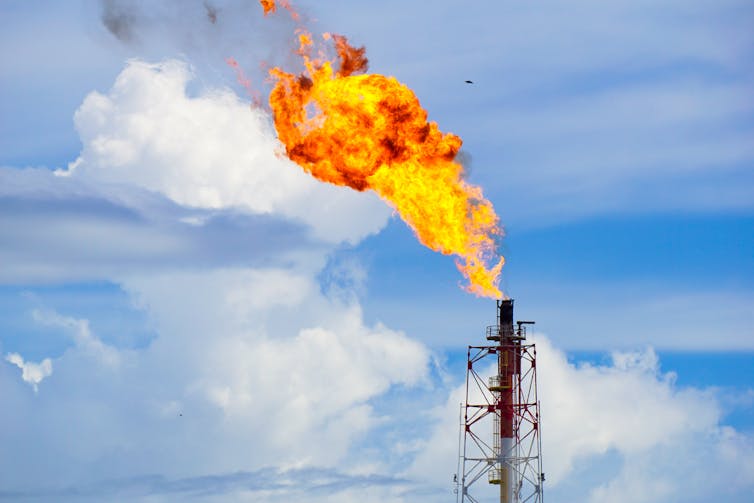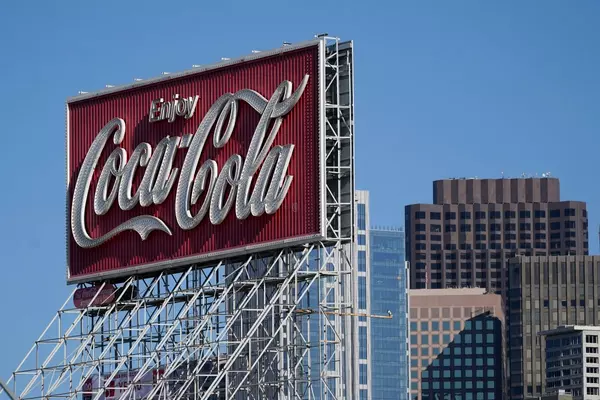The latest UN climate summit, COP28, was always going to be controversial. It was held in a state whose economy is heavily dependent on oil and gas – the United Arab Emirates. The summit president, Sultan Al Jaber, remains head of the Abu Dhabi National Oil Company and recently declared the UAE would double oil and gas output this decade.
This was hardly the strong leadership to move away from fossil fuels that many had hoped for. More than 100,000 delegates were registered (twice as many as any previous COP) of which more than 2,000 were official representatives of fossil fuel companies.
But COP28 started well with US$400 million (£314 million) being announced on day one for more vulnerable countries to cope with climate disasters – and talk was all about a new climate agreement including the phasing out of all fossil fuels.
Now that the summit is over and the dust has settled, we examine the key outcomes.
1. The end of fossil fuels?
Perhaps surprisingly, this was the first COP to officially acknowledge that fossil fuels are the root cause of climate change. And it is worth remembering that fossil fuels were only first mentioned in an international climate agreement in 2021 at COP26 in Glasgow. Yet it still lacked ambition.
Most countries wanted a strong statement on phasing out or at the very least phase down (reducing) fossil fuels. Instead countries agreed a statement saying we must “transition away from fossil fuels in energy systems, in a just, orderly and equitable manner, accelerating action in this critical decade, so as to achieve net zero by 2050 in keeping with the science”.
This language – a “transition away” rather than a full “phase-out” – is not as strong as many wanted. As a statement made by Samoa on behalf of the Alliance of Small Island States put it, these decisions are “an incremental advancement over business as usual” when what is needed is “exponential step-change” to keep 1.5°C alive.
In theory the agreement heralds the end of the fossil fuel era, but it offers an intentional loophole for countries and companies to “abate” the use of fossil fuels by using carbon capture and storage. This justifies the continued burning of oil and gas.
Read more: The COP28 climate agreement is a step backwards on fossil fuels
2. Loss and damage
“Loss and damage” is the term given for finance for developing countries that have suffered a major climate change-related disaster. A fund was agreed at COP27 in 2022 and recent announcements mean US$700 million has now been pledged.
While this is welcome news it is a drop in the ocean compared with the US$400 billion actually needed. It’s also insignificant compared to, for instance, the estimated US$7 billion cost of building the COP28 venue Dubai Expo City.
It is still not clear how the fund will work, what the major funding streams will be or whether the allocation of finance will be community-driven and corruption free. And despite opposition, it has been agreed the World Bank will administer the fund for a negotiated fee of 24% – meaning one in four dollars pledged will never make it to the countries in need.
So overall, this summit did not deliver on climate finance and this key issue has been pushed to COP29 November 2024.
3. Renewable energy and transitional fuels
A pledge signed by 118 countries to triple renewable energy capacity and double the global rate of energy efficiency by 2030 is a step in the right direction.
It is worth noting the text of the pledge also recognises the role “transitional fuels” will have in maintaining energy security for the time being. This makes the use of climate-damaging liquefied petroleum gas acceptable. This isn’t ideal, but in developing countries it is still a healthier and less polluting option for home cooking and heating than burning wood or other biomass. Nonetheless, there really should be a timeline attached to the use of these transitional fuels.
On the sidelines of COP28, green hydrogen also had its moment. Produced through a process that splits water using electricity generated from wind or solar power, industries pledged to scale up zero-emissions fuel derived from renewables-based hydrogen to 11 million tonnes by 2030.
4. Oil and gas decarbonisation charter
Over 50 national and international oil companies, representing about 40% of global production, signed a decarbonisation charter. The initiative sets three main aims: to achieve net zero emissions in each company’s direct operations (as opposed to the use of their products) by or before 2050, to achieve near-zero methane leakage from the production of oil and gas by 2030, and to achieve zero routine flaring (burning excess gas) by 2030.

The last two pledges are particularly important as methane is a very powerful (but short-lived) greenhouse gas and a quarter of all man-made methane emissions come from oil and gas production. So reducing these emissions is a quick win which buys us time. But again, 60% of world oil and gas production is not covered by this charter. These companies will continue to save money by venting methane and flaring natural gas.
5. Global stocktake – 1.5°C is at risk
The “global stocktake”, finalised at COP28, was the first time the global climate regime took stock of how the international community has collectively reduced its greenhouse gas emissions since the Paris Agreement in 2015.
The biggest takeaway from the stocktake told us what we already knew – the world is way behind and the 1.5°C warming limit agreed in Paris is at risk.
While the big takeaway from COP28 will be that countries have come up with a deal that calls for them to transition away from fossil fuels while acknowledging the need for a “deep, rapid” reduction in emissions, the weak language is at complete odds with the official global stocktake.
So what next? Well, another year of negotiation and pushing for countries to increase their ambition so net zero can be achieved by 2050 with increased financing. The next UN climate summit, COP29, will be in Azerbaijan, another major oil and gas producer with a poor human rights record, and one that is strongly influenced by Russia.
But the real challenge will be forcing countries to raise their commitment to cutting emissions so that the 1.5°C limit isn’t lost.

Don’t have time to read about climate change as much as you’d like?
Get a weekly roundup in your inbox instead. Every Wednesday, The Conversation’s environment editor writes Imagine, a short email that goes a little deeper into just one climate issue. Join the 20,000+ readers who’ve subscribed so far.
Mark Maslin is the UNFCCC designated point of contact for UCL. He is co-director of the London NERC Doctoral Training Partnership and a member of the Climate Crisis Advisory Group. He is a member of the Sopra-Steria CSR Board, Sheep Included Ltd, Lansons and NetZeroNow advisory boards. He has received grant funding from the NERC, EPSRC, ESRC, DFG, Royal Society, DIFD, BEIS, DECC, FCO, Innovate UK, Carbon Trust, UK Space Agency, European Space Agency, Research England, Wellcome Trust, Leverhulme Trust, CIFF, Sprint2020, and British Council. He has received funding from the BBC, Lancet, Laithwaites, Seventh Generation, Channel 4, JLT Re, WWF, Hermes, CAFOD, HP and Royal Institute of Chartered Surveyors.
Professor Priti Parikh is a fellow and trustee for Institution of Civil Engineers. She is aboard member for Happold Foundation and Engineers Against Poverty. Research funding sources include UKRI, Royal Academy of Engineering, Water Aid, British Academy, Bboxx Ltd, UCL, Royal Society and British Council. She is currently part funded by the Royal Academy of Engineering/Bboxx Research Chair fellowship. Her consultancy has received funding from AECOM, Cambridge Institute for Sustainable Leadership, Water and Sanitation for the Urban Poor, UNHABITAT, Arup, ITAD and GTZ
Simon Chin-Yee works with the World Bank, Global Maritime Forum and UN Foundation among others to foster green initiatives. He has previously held positions within the United Nations Education, Scientific and Cultural Organisation (UNESCO), as well being the Konrad Adenauer fellow (KAS) for the European Centre for Energy and Resource Security, King's College London and a researcher on an London School of Economics and Political Sciences collaborative project funded by the Arab Universities Programme, which is supported by the Emirates Foundation.
This article was originally published on The Conversation. Read the original article.







